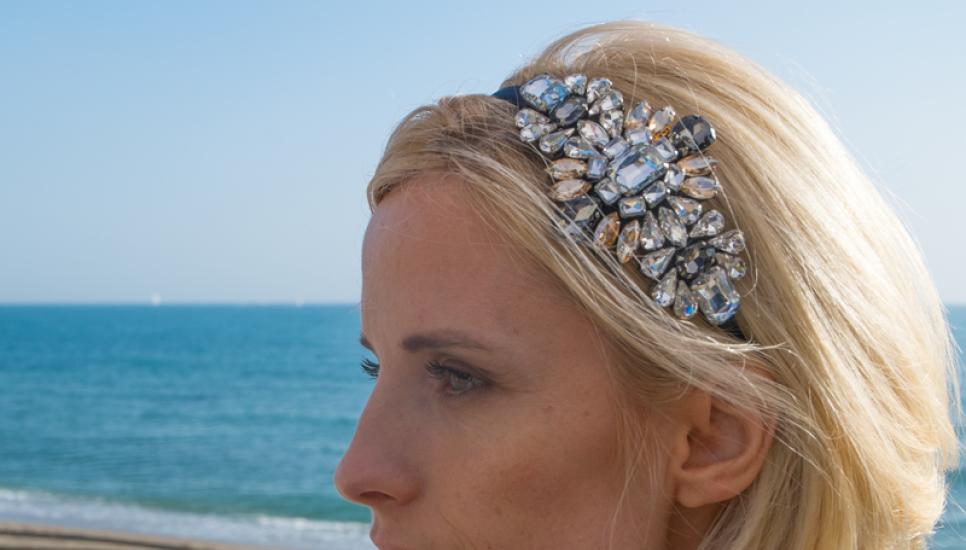My business: Brigitte von Boch

Family businesses often identify core values, but ninth-generation Oliver von Boch has taken the process one-step further and distilled them into a lifestyle brand. Michael Finnigan reports
After the renovation of their family's near century-old estate, 47-year-old Oliver von Boch, a ninth-generation member of German ceramics business Villeroy & Boch, saw an opportunity to get entrepreneurial. Inspired by his mother's distinctive redecorations, he launched lifestyle brand Brigitte von Boch in her name. Today it is a global business with a modern online market place.
I started my career at Roland Berger Strategy Consultants in London. In 1995, my father asked me to head the marketing of the US subsidiary of Villeroy & Boch, as it was losing money and he needed someone he could trust in the organisation. It was a great time as I could analyse the problems, find solutions, and implement them. After two years, we had the business back on track and I had come across some interesting ideas that I was keen to emulate in Germany.
 After some research, we put an ad for Villeroy & Boch into the Martha Stewart Living magazine and had incredible response. We had such a huge number of calls that our phone line went down, which we did not anticipate. So I took a closer look at this business model and thought it was interesting. Martha Stewart started as a caterer, who took pictures of her cakes and then put them into a book. Eventually she started her own TV show and later licensed her name to products in catalogues. So I became interested in the idea of creating a lifestyle brand through media.
After some research, we put an ad for Villeroy & Boch into the Martha Stewart Living magazine and had incredible response. We had such a huge number of calls that our phone line went down, which we did not anticipate. So I took a closer look at this business model and thought it was interesting. Martha Stewart started as a caterer, who took pictures of her cakes and then put them into a book. Eventually she started her own TV show and later licensed her name to products in catalogues. So I became interested in the idea of creating a lifestyle brand through media.
Around the same time, my mother had renovated our old family farm and changed it into a hotel, restaurant, and venue for seminars, weddings, and events. The style led to people asking about the sources of the products. The press was also publishing stories about the hotel and its founder. So we started by publishing a coffee-table book about Christmas decoration, which sold 75,000 copies. We knew there was a definite market and started also sending out our own Brigitte von Boch products from the estate. As the business grew, we started a lifestyle magazine and opened shops in Germany, Austria, and Luxembourg.
 Things have moved on since I founded the business in 1998. For one, the collection now includes fashion, jewellery, and accessories. My wife has also taken a major role in the business. Perhaps most importantly, we have just now been through a major restructuring, as we are focusing on the online side of the business.
Things have moved on since I founded the business in 1998. For one, the collection now includes fashion, jewellery, and accessories. My wife has also taken a major role in the business. Perhaps most importantly, we have just now been through a major restructuring, as we are focusing on the online side of the business.
 Setbacks are to be expected when starting a new business but as you solve problems, you also find new opportunities. Looking back you have to understand where you made mistakes and learn from them for the future. However, to start a sentence with “if only” is a waste of time, because the decisions have been taken and the course of history cannot be changed.
Setbacks are to be expected when starting a new business but as you solve problems, you also find new opportunities. Looking back you have to understand where you made mistakes and learn from them for the future. However, to start a sentence with “if only” is a waste of time, because the decisions have been taken and the course of history cannot be changed.
To work as a family has its advantages, but it comes with its own difficulties. The dynamics of a family have to be taken into consideration when building a business on its foundation. Villeroy & Boch is a great example of a family business that has kept going for nine generations and has brought together two families from France and Germany. But working in a large corporation versus a start-up is a very different experience.
My wife works on product design and development but she is also a good sounding board for all the main decisions. That helps to create a very special relationship, because we spend so much time together. It is something that I treasure greatly but, at the same time, part of the challenge is recognising when to switch off.
 When I'm not working on Brigitte von Boch, I spend my time developing side projects. One of the more interesting is the Boy Capel Challenge—a classic car race that brings together friends from all over the world for charity. Boy Capel was a British entrepreneur and thinker from the beginning of the last century and, in 1917, he predicted that Europe would need to be federated in order to avoid future wars. His thoughts are more current than ever and we support charities that help people to come together.
When I'm not working on Brigitte von Boch, I spend my time developing side projects. One of the more interesting is the Boy Capel Challenge—a classic car race that brings together friends from all over the world for charity. Boy Capel was a British entrepreneur and thinker from the beginning of the last century and, in 1917, he predicted that Europe would need to be federated in order to avoid future wars. His thoughts are more current than ever and we support charities that help people to come together.
Another project is a real estate fund in Berlin, which I believe is a huge opportunity. Berlin became the capital of the fourth-largest economy in the world in 1990 and is becoming the new Silicon Valley of Europe. More and more businesses and people are moving to Berlin, but the planning and building of new housing and office space is unable to keep pace with these developments. We are raising a Luxembourg-based fund to invest in certain building projects in Berlin and are looking for other families to invest together with us.
 Now that we've introduced a new online marketplace for Brigitte von Boch, we hope to grow the business over the next five years. We want to grow online and internationally. Every day is a challenge, but we think we have an interesting product, story, and a growing distribution channel.
Now that we've introduced a new online marketplace for Brigitte von Boch, we hope to grow the business over the next five years. We want to grow online and internationally. Every day is a challenge, but we think we have an interesting product, story, and a growing distribution channel.






